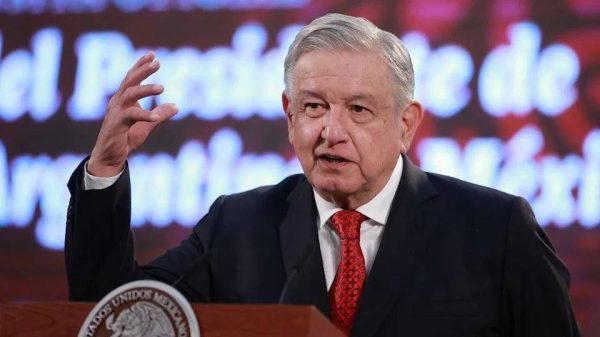AMLO is putting Mexico’s democracy at risk
April 29, 2021, BY ANDRES OPPENHEIMER-OPINION, (MIAMI HERALD).- Mexico’s President Andrés Manuel López Obrador’s latest effort to expand his powers is drawing growing international attention, to the point that top legal experts say that the country’s democracy is at risk.
Javier Cremades, president of the World Jurists Association, told me that his group will release a statement by more than 1,000 legal experts in the coming days to warn about the “fragility” of Mexico’s rule of law. The group includes sitting and retired chief justices, judges, legal experts and law professors from 140 countries.
Cremades told me in an interview from Madrid, that López Obrador’s interference with the justice system will also raise questions about Mexico’s status as a secure destination for foreign investments.
“Some of his actions are producing real concerns among jurists and among democrats around the world,” Cremades told me. “The fear is that democracy, the rule of law — the legal system itself — are under threat.”
In a move that many see as a power grab, Mexico’s Congress recently extended the term of Supreme Court Justice Arturo Zaldivar — a close ally of the president — by two years. That would allow him to keep his job until the end of López Obrador’s term.
The two-year extension would seem like a minor issue, if it weren’t for the fact that virtually all independent jurists say it’s unconstitutional. In Article 97, the Mexican Constitution says that the chief justice can only serve for four years, “and can’t be re-elected for a period immediately afterward.”
López Obrador, a leftist populist, claims that he is only seeking a two-year extension of the chief justice’s term, and not his re-election for a full term. The president also claims that it’s very important for Zaldivar to stay in his job in order to reform the judiciary, which, according to the president, is “corrupt” and “at the service of the powerful” and “the conservatives.”
Several Mexican legal organizations and opposition parties have warned about López Obrador’s authoritarian moves. In recent days, the Washington, D.C.-based Inter-American Human Rights Commission and the Human Rights Watch advocacy group have voiced their concerns.
“The move directly contravenes the Mexican Constitution and undermines judicial independence,” says Human Rights Watch’s America’s director, Jose Miguel Vivanco. “It is nothing less than a direct assault on the rule of law in Mexico.”
What’s most worrisome is that the so-called “Zaldivar law” extending the chief justice’s term is just the latest of several attempts by López Obrador to grab extraordinary powers. While he’s not a Venezuelan-styled dictator, it’s hard not to ask whether he’s gradually moving to co-opt independent institutions.
Last month, López Obrador sent a public letter to Zaldivar asking him to “launch an investigation” into a judge who had frozen the government’s signature energy-reform bill. López Obrador claimed that the judge was defending the interests of “the oligarchy” and “corporate interests.”
Earlier, López Obrador had stepped up his criticism of Mexico’s National Election Institute, the body in charge monitoring Mexico’s elections. The Institute played a key role in leading Mexico to a full democracy in 2000 after seven decades of authoritarian rule by the Institutional Revolutionary Party (PRI.)
But by attacking independent institutions, the president will make it more difficult for Mexico to recover from its economic slump, because many Mexican and foreign investors will be hesitant to put their money into a country without strong checks and balances.
How can López Obrador expect investors to trust Mexico’s rule of law when he supports a law that violates the constitution?
Just as important, how can we know that López Obrador won’t try to re-elect himself in 2024, despite the constitution’s explicit prohibition of two consecutive presidential terms? If he did it with the chief justice, why wouldn’t he do it for himself?
Until now, many Mexico watchers have largely ignored López Obrador’s tirades against the “oligarchy” as empty talk from a populist narcissist stuck in the 1970s. But his latest moves are not just words, but actions. That’s why the World Jurists Association and other groups are increasingly worried about the fate of Mexico’s rule of law, and of its democracy.
by Andres Oppenheimer for the Miami Herald



